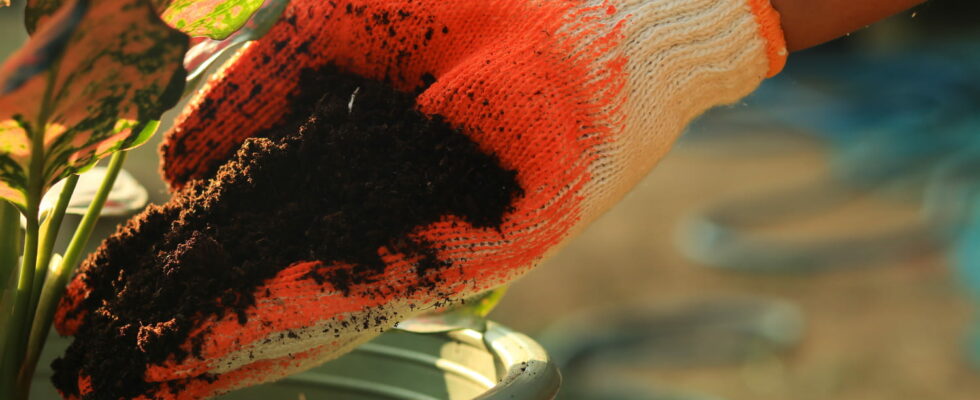The coffee grounds are an excellent fertilizer for many plants, but it is not suitable for all.
Coffee grounds are a very good free alternative to fertilizers sold in the trade. Many gardeners use it in their garden. Rich in nitrogen, phosphorus and potassium, it promotes plant growth, improves soil structure and attracts earthworms. Although coffee grounds can be very beneficial for many Plants, however, do not appreciate the high concentration of caffeine and acids it contains.
Some plants do not react well to this organic addition and may suffer from excessive acidity or excess nitrogen. A coffee grounds overdose is not suitable for sowing and young plants, and can also harm the growth of certain vegetables and certain herbs which prefer alkaline and limestone soil. Coffee grounds are therefore only suitable for plants that need acid soil to thrive.
Before using it, it is essential to know the needs of your cultures. For plants sensitive to acidity or excess nitrogen, it is better to opt for other types of natural fertilizers such as well decomposed compost or wood ash. Here are ten plants that don’t like coffee grounds as fertilizer:
- Tomatoes : BIt is that tomatoes need nitrogen, excess can promote excessive development of foliage at the expense of fruit. In addition, coffee grounds can acidify the soil, which is not ideal for them.
- Lavender : CAnd the Mediterranean plant prefers alkaline and well -drained soils. The coffee grounds, often too acidic and compacting, can hinder its good development.
- Rosemary : CTo the lavender, rosemary tolerates too acidic soils. A contribution of coffee grounds could harm its roots and growth.
- Thyme : he naturally grows in dry and poor soils. Too much nitrogen can promote too tender foliage and less good resistance to diseases.
- Orchids : they Do not appreciate the excess of humidity and acidity that the coffee grounds can bring. It can also promote the development of mold.
- Geraniums : tnitrogen rop prevents flowering of geraniums. A soil too rich in nutrients can reduce their ability to produce beautiful colorful flowers.
- Peas and beans : Che legumes already fix nitrogen in the soil, and an additional contribution could harm their growth.
- Carrots : Un excess of nitrogen promotes the development of foliage rather than that of roots, which can reduce the quality of your carrots.
- The radishes : tOut like carrots, radishes can push unbalanced with too much nitrogen, making their roots less tasty.
- Grasse plants (succulents, cacti) : Che plants thrive in poor and well -drained soils. A coffee grounds can retain too much humidity and promote root rot.
